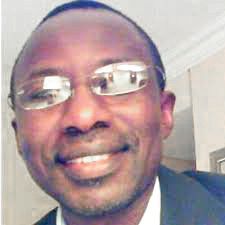During a wide-ranging interview with Africa Watch, Redge Nkosi, the Pretoria-based founder and executive director of First Source Money and Public Banking of South Africa, said, “You cannot have a (White) minority determining an agenda in a country that is overwhelmingly African.”

South Africa, which is 80 percent Black African, still has an economy controlled by a White minority.
Nkosi, who specializes in macroeconomics, money and banking and development economics, worked in the Mandela, Mbeki and Zuma presidential administrations. He says some members of the African National Congress (ANC), but especially members of Julius Malema’s Economic Freedom Fighters Party (EFF) are involved in “forming a social grouping that addresses African peoples’ challenges.”

Heading these African-only discussions, Nkosi said, is one of the “most elitist Africans you can get,” Christopher Malikane, professor of economics at the Johannesburg-based University of Witwatersrand.
According to Professor Malikane, there must be an “African vision for this country.”
During several forums, including one Nov. 28 in Durban, he asked, “So why is that the case? “The Chinese have their vision. That doesn’t mean that there’s no non-Chinese in China. The Indians have a vision that doesn’t mean there is no non-Indian people in India. There are people who are not Indians in India. There are people who are not Chinese in China. There are people who are not Whites in Britain. But the White people in Britain are determining the agenda of Britain, the Black people living there don’t. It’s not their country. They were enslaved. Their position has not changed,” he said.
Mr. Nkosi believes this new approach says, “It’s time for any non-African to step aside and let the African determine … how they’re going to manage the economy.”
So far there have been “face-to-face meetings” or forums in Johannesburg and in Durban. According to Nkosi the forums are open to “Africans only.” Qualifying his statement, he said, “So far as we’re concerned an African in America is an African.”
A forum is being scheduled for the “Northern province (Limpopo), where Ramaphosa comes from.”
“And it’s going to take place across the country, spread across South Africa,” Nkosi said. Cyril Ramaphosa is South Africa’s president.
If “the ANC cannot or fails to address the challenges of the African people as is felt, then don’t vote for the ANC,” he said.
Bringing the African Diaspora into plain view, the former member of the Mandela administration said, “The largest population of Africans outside of Africa is in Brazil. So we’re trying to tap into all these Africans wherever they are. Look, we’re going to have to determine our own agenda. And if Africans, wherever they are, whether in China or anywhere, they must be party to the determination of the lives of African people here on the continent. So that all these (White) minorities must in fact follow what the Africans are doing.”
Responding to questions concerning South Africa’s economy, Nkosi said there is a growing movement to nationalize South Africa’s Reserve Bank. In 2017 the ANC, reported BusinessTech.co.za, decided that the state should take ownership of the South African Reserve Bank, “one of a handful of central banks owned by private investors, because the prevailing ownership structure infringed on the nation’s sovereignty.” But in a complete turnaround, reported bloomberg.com, “A top South African ruling party official said plans to nationalize the central bank (reserve bank) will be shelved as the government wrestles with getting the coronavirus-stricken economy back on track.”
According to Nkosi, the economy is getting back on track. He said the pandemic has gone from a level five to a level one, meaning “most normal activity can resume, with precautions and health guidelines followed at all times.”
“South Africa is one of the few, about seven countries in the world where reserve banks are privately owned. And the EFF put a motion in Parliament, what you call Congress, a bill, an amendment bill saying that we should nationalize the reserve bank. This is currently before Parliament,” he said.
The EFF, South Africa’s third largest party, said nationalizing the bank would be “politically and morally justifiable” and ANC treasurer-general Paul Mashatile’s comments showed he and the ANC were “ideologically spineless, economically illiterate and gullible to neo-liberal false alarms.”
The main opposition Democratic Alliance party, reported bloomberg.com, said nationalization should be scrapped completely because ongoing uncertainty was alienating investors.
Much of what is being said in opposition is “ideological talk … not really economic talk,” argued Nkosi. He said a growing “chunk of African people want the reserve bank in the hands of citizens, not in the hands of private individuals.”
And, he pointed out, the Democratic Alliance represents White South Africans, not the country’s indigenous population. Nkosi also believes “there is an element of racism in here. Ninety to 100 percent of non-Africans want the reserve bank to be in private (White) hands,” he said.
Nkosi, who has been researching the history of reserve banks for a piece he’s writing, added, “In fact, in my research work Adam Smith and John Maynard Keynes, the leading British economist of all times … advocated the nationalization of the bank of England.” The British economist understood “the developmental role the bank would play in lifting the UK economy. So I have to quote those fellows to show it’s nonsensical that there should be some elements in South Africa that think we shouldn’t nationalize the South African Reserve Bank. When in fact the leading economists advocated and continued to advocate for a reserve bank that’s controlled democratically.”
(Follow @jehronmuhammad on Twitter.)













